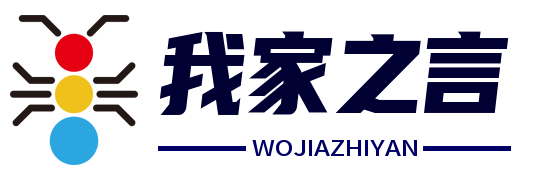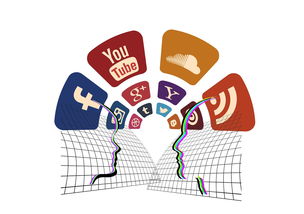随着科技的飞速发展,我们生活的方方面面都在经历着前所未有的变革,在教育领域,尤其是英语作文教学,高科技的应用正逐渐改变着传统的教学模式和学习方式,本文将探讨高科技如何塑造我们的英语作文,以及这些变化对我们未来的教育意味着什么。
让我们回顾一下传统的英语作文教学,在过去,学生通常需要在纸上写作文,然后由老师进行批改,这个过程不仅耗时,而且反馈往往不够及时,随着互联网和人工智能技术的发展,这种情况正在发生改变。
在线写作平台和应用程序的出现,使得学生可以随时随地进行写作练习,这些平台通常配备有自动评分和反馈系统,能够即时指出学生作文中的错误,并提供改进建议,Grammarly这样的工具可以帮助学生检查语法和拼写错误,而Hemingway Editor则可以帮助学生提高文章的可读性,这些工具的使用,不仅提高了学生的写作效率,也提高了他们的写作质量。
虚拟现实(VR)和增强现实(AR)技术也为英语作文教学带来了新的可能,通过这些技术,学生可以沉浸在一个虚拟的环境中,进行角色扮演或模拟场景写作,这种互动式的学习体验,不仅可以提高学生的兴趣和参与度,还可以帮助他们更好地理解和掌握语言的使用。
人工智能在英语作文教学中的应用也不容忽视,AI教师可以提供个性化的教学方案,根据学生的学习进度和能力,调整教学内容和难度,AI可以根据学生的作文表现,推荐相应的阅读材料或写作练习,以帮助他们提高写作技能,这种个性化的学习方式,有助于学生更有效地学习,同时也减轻了教师的工作负担。
高科技在英语作文教学中的应用也带来了一些挑战,首先是技术依赖的问题,过度依赖技术可能会削弱学生的独立思考和解决问题的能力,隐私和数据安全也是需要关注的问题,在线平台和应用程序需要妥善处理学生的个人信息,以保护他们的隐私。
高科技正在以多种方式塑造我们的英语作文,它为我们提供了更高效、更互动的学习工具,同时也带来了新的挑战,作为教育者和学习者,我们需要适应这些变化,充分利用高科技的优势,同时也要警惕其可能带来的问题。
在未来,我们可以预见,随着技术的不断进步,英语作文教学将变得更加智能化和个性化,学生将能够通过高科技工具,更有效地学习和掌握英语写作技能,教育者也需要不断更新自己的知识和技能,以适应这些变化,为学生提供更好的教育体验。
在这个充满挑战和机遇的时代,让我们拥抱高科技,探索它在英语作文教学中的无限可能,通过不断学习和创新,我们可以共同塑造一个更加高效和有趣的学习环境,为学生的未来打下坚实的基础。
翻译: Exploring the Future: How High Technology Shapes Our English Composition
With the rapid development of technology, every aspect of our lives is undergoing unprecedented changes. In the field of education, especially in English composition teaching, the application of high technology is gradually changing the traditional teaching methods and learning modes. This article will explore how high technology shapes our English composition and what these changes mean for our future education.
First, let's review the traditional English composition teaching. In the past, students usually had to write compositions on paper, which were then corrected by teachers. This process was not only time-consuming but also often lacked timely feedback. However, with the development of the Internet and artificial intelligence technology, this situation is changing.
The emergence of online writing platforms and applications allows students to practice writing anytime and anywhere. These platforms are usually equipped with automatic scoring and feedback systems that can immediately point out errors in students' compositions and provide suggestions for improvement. For example, tools like Grammarly can help students check for grammatical and spelling errors, while Hemingway Editor can help students improve the readability of their articles. The use of these tools not only improves students' writing efficiency but also their writing quality.
In addition, virtual reality (VR) and augmented reality (AR) technologies have also brought new possibilities to English composition teaching. Through these technologies, students can immerse themselves in a virtual environment to engage in role-playing or scenario-based writing. This interactive learning experience not only increases students' interest and participation but also helps them better understand and master the use of language.
The application of artificial intelligence in English composition teaching should not be overlooked. AI teachers can provide personalized teaching plans, adjusting the teaching content and difficulty according to students' learning progress and abilities. For example, AI can recommend corresponding reading materials or writing exercises based on students' composition performance to help them improve their writing skills. This personalized learning approach helps students learn more effectively and also reduces the workload of teachers.
However, the application of high technology in English composition teaching also brings some challenges. The first is the issue of technological dependence. Over-reliance on technology may weaken students' ability to think independently and solve problems. In addition, privacy and data security are also issues that need attention. Online platforms and applications need to properly handle students' personal information to protect their privacy.
Overall, high technology is shaping our English composition in various ways. It provides us with more efficient and interactive learning tools, but it also brings new challenges. As educators and learners, we need to adapt to these changes, make full use of the advantages of high technology, and also be aware of the potential problems it may bring.
In the future, we can foresee that with the continuous advancement of technology, English composition teaching will become more intelligent and personalized. Students will be able to more effectively learn and master English writing skills through high-tech tools. At the same time, educators also need to continuously update their knowledge and skills to adapt to these changes and provide better educational experiences for students.
In this era full of challenges and opportunities, let us embrace high technology and explore its infinite possibilities in English composition teaching. By continuously learning and innovating, we can together shape a more efficient and interesting learning environment and lay a solid foundation for students' future.









